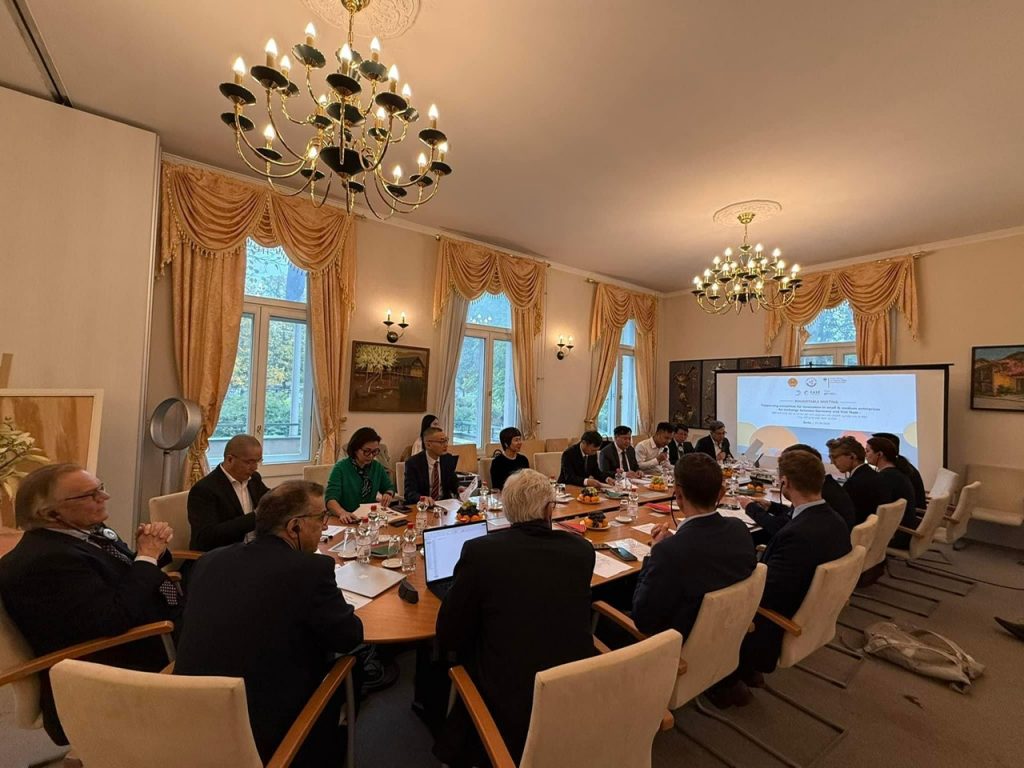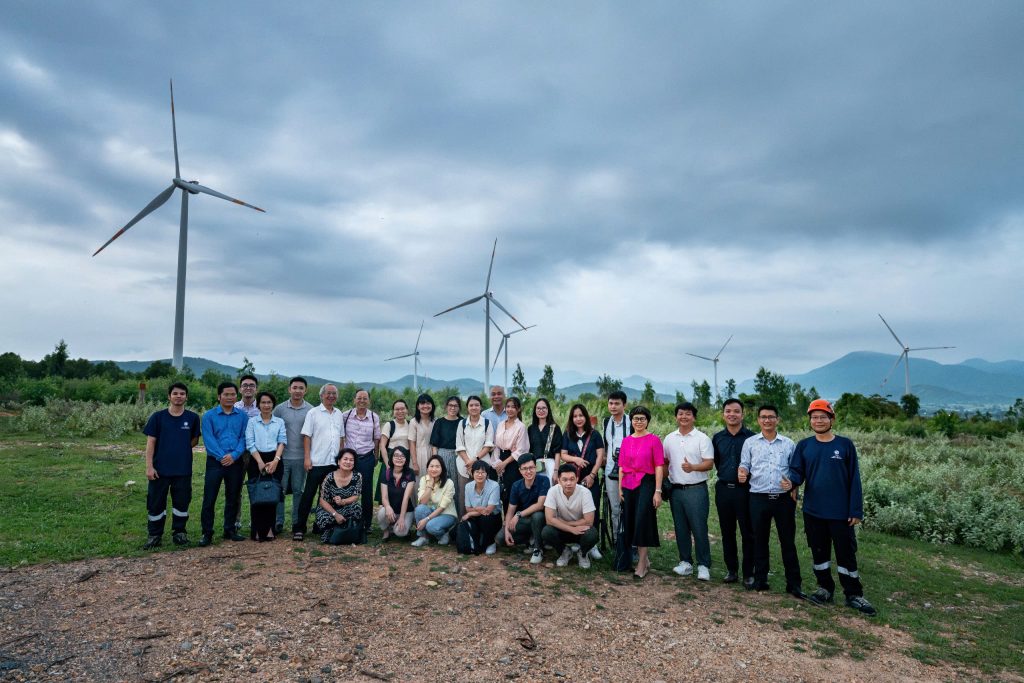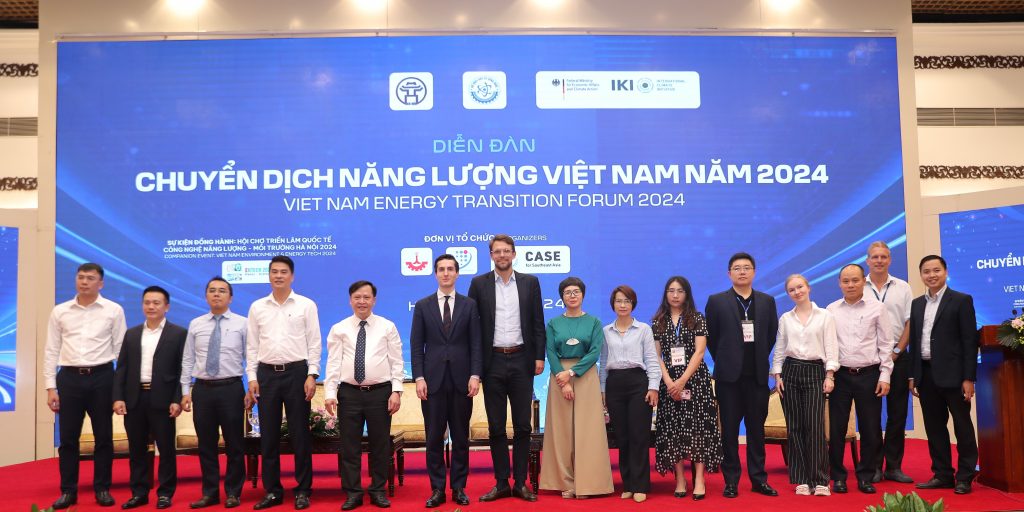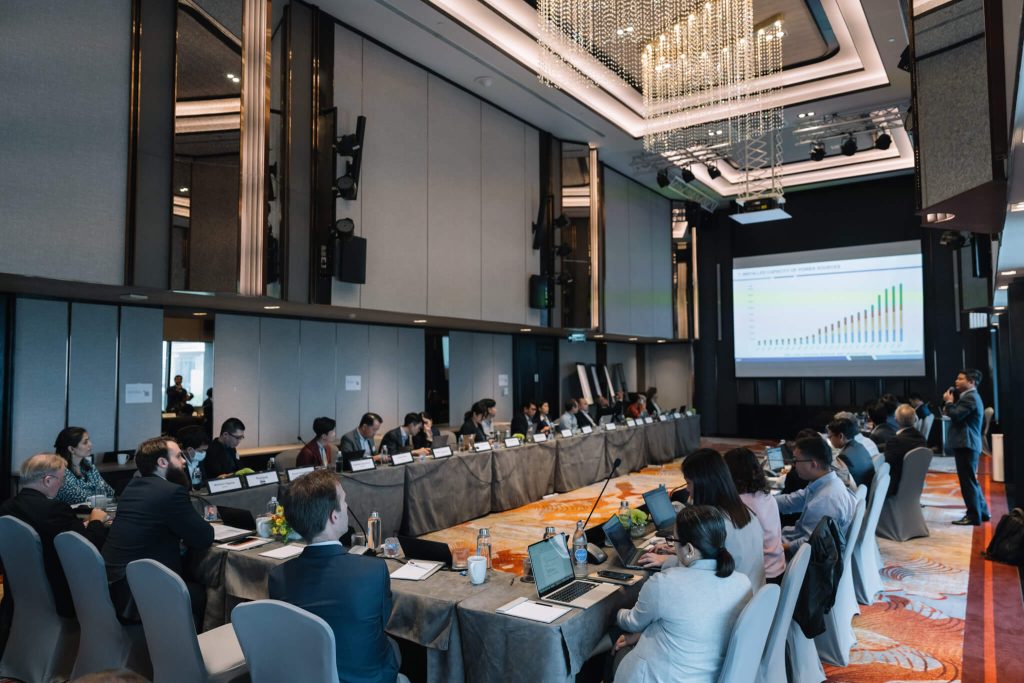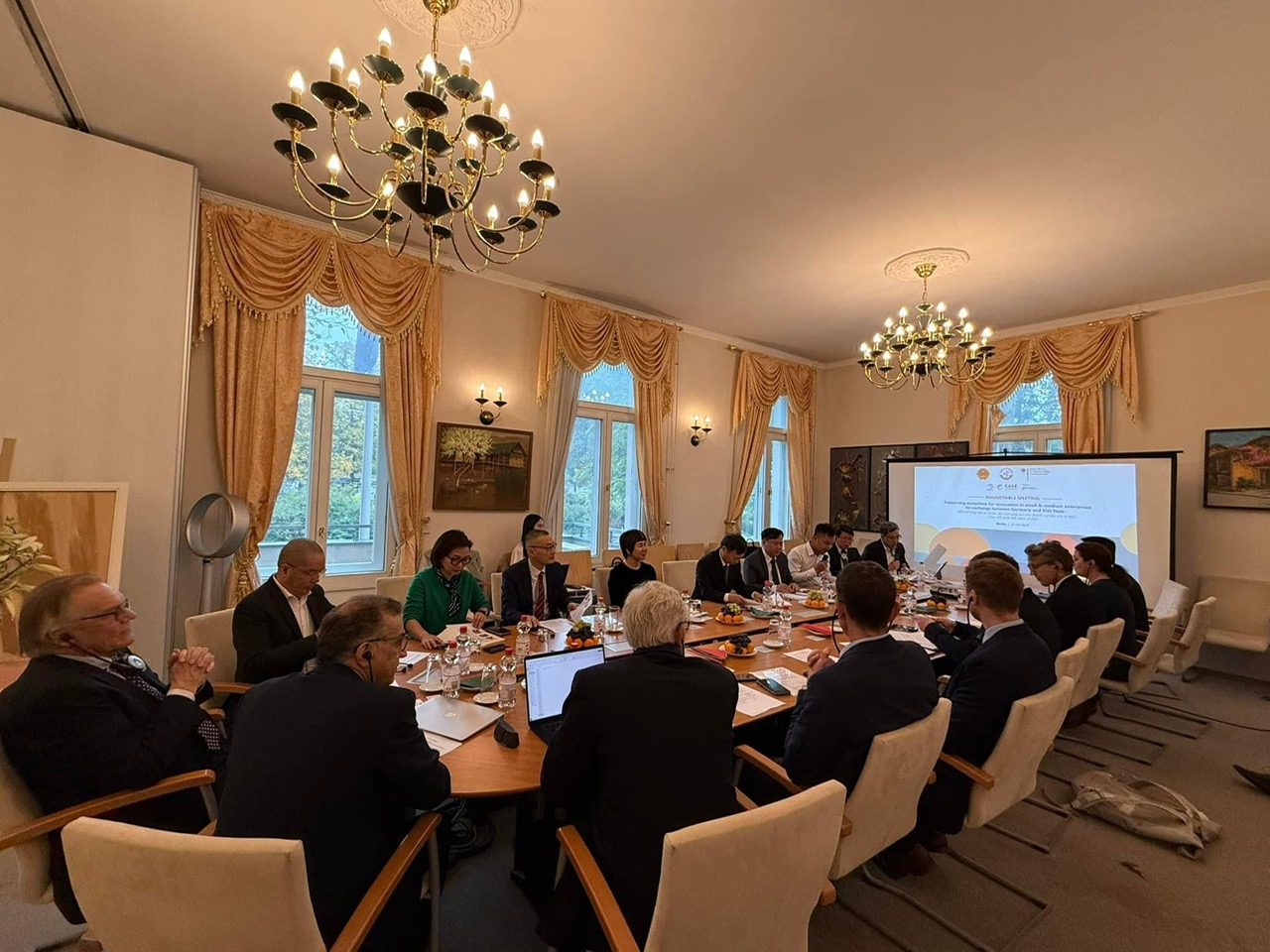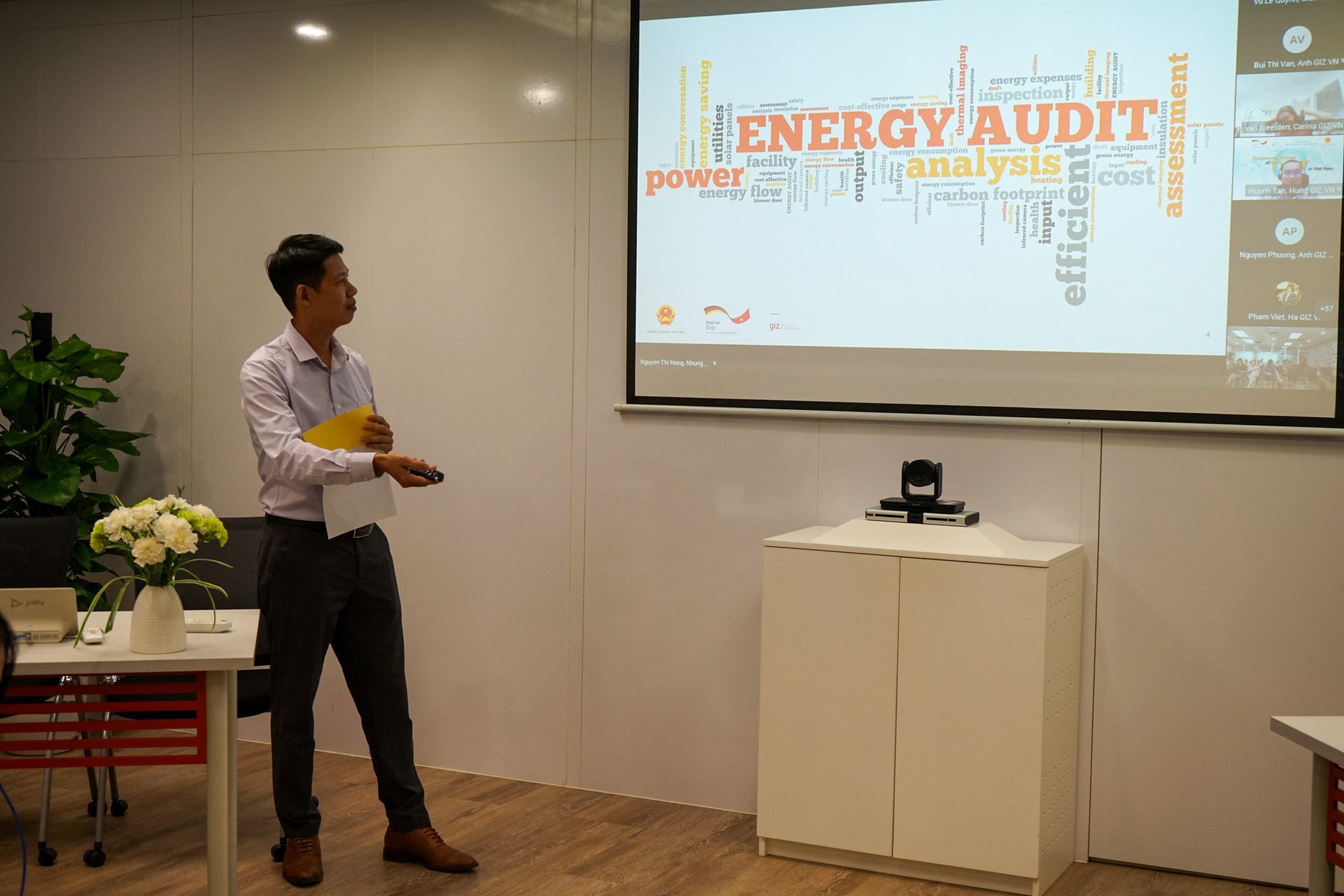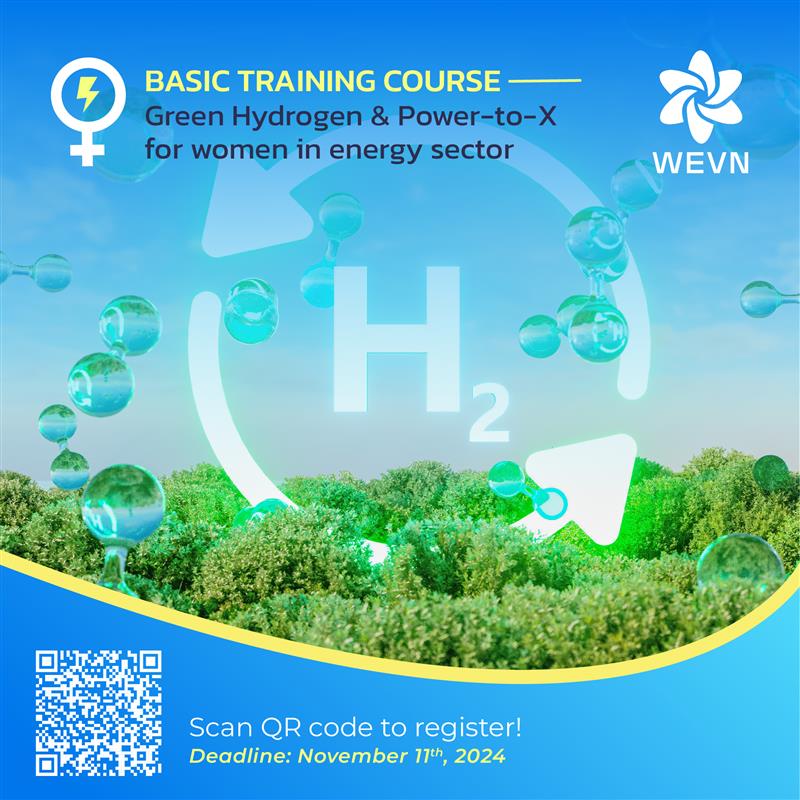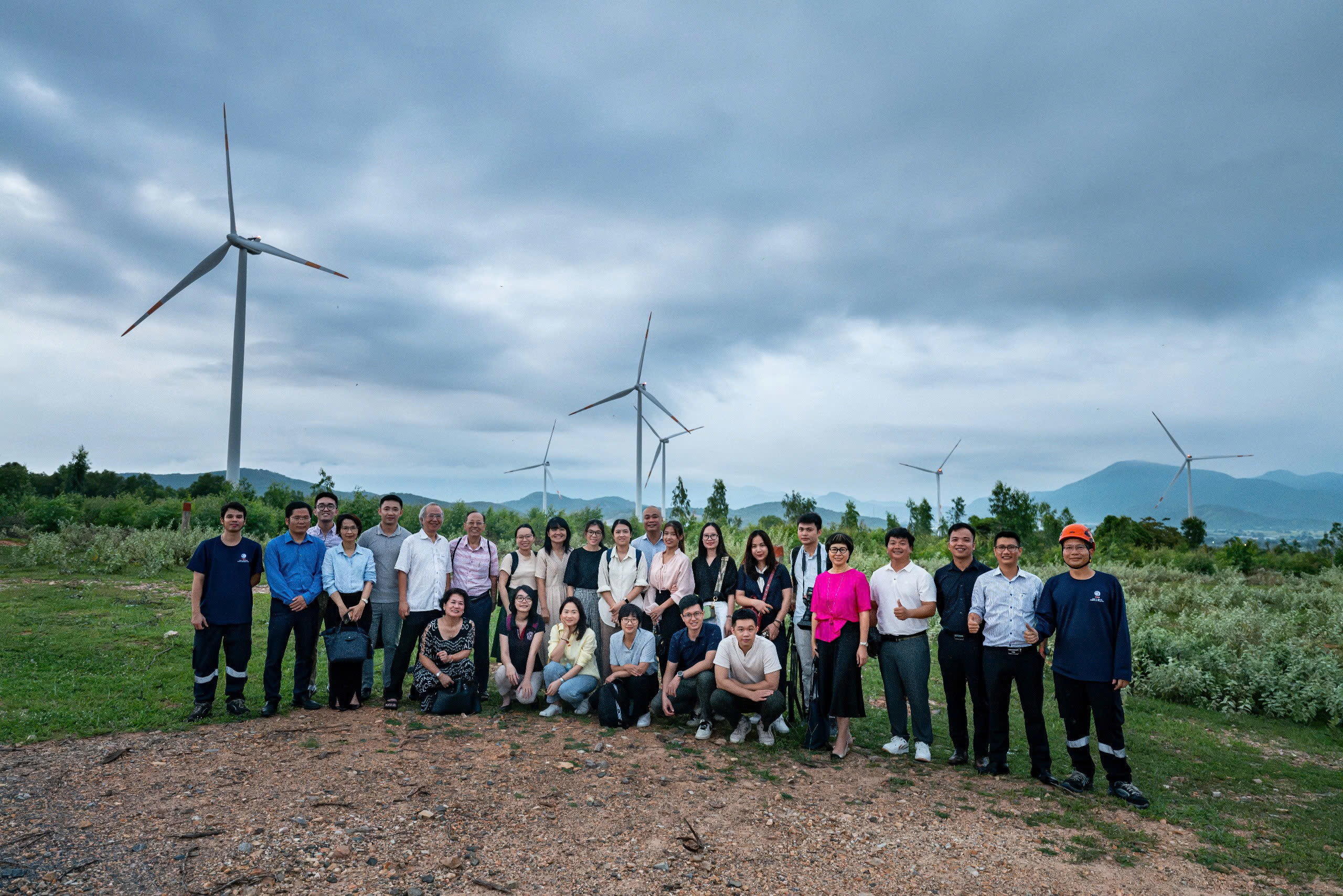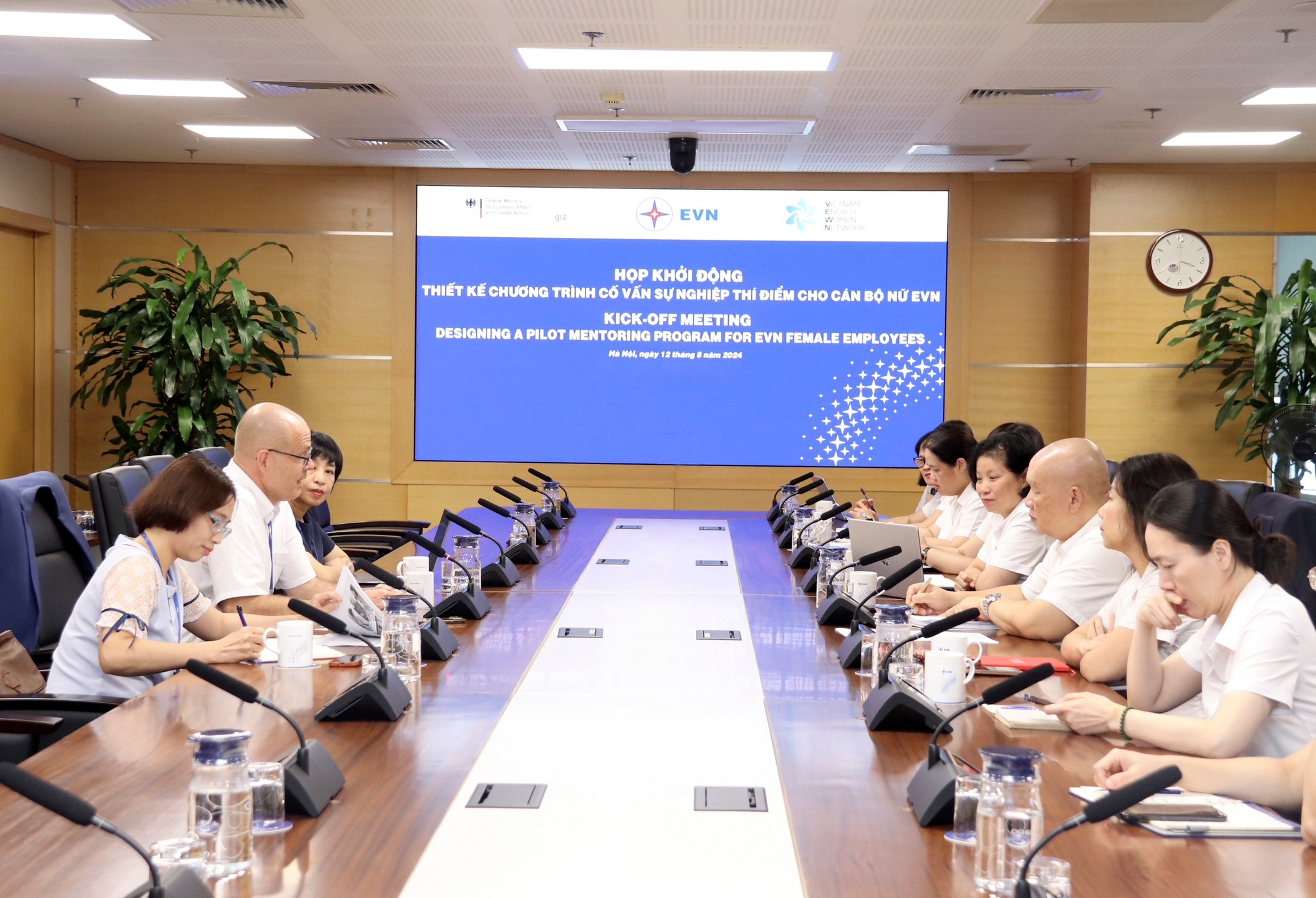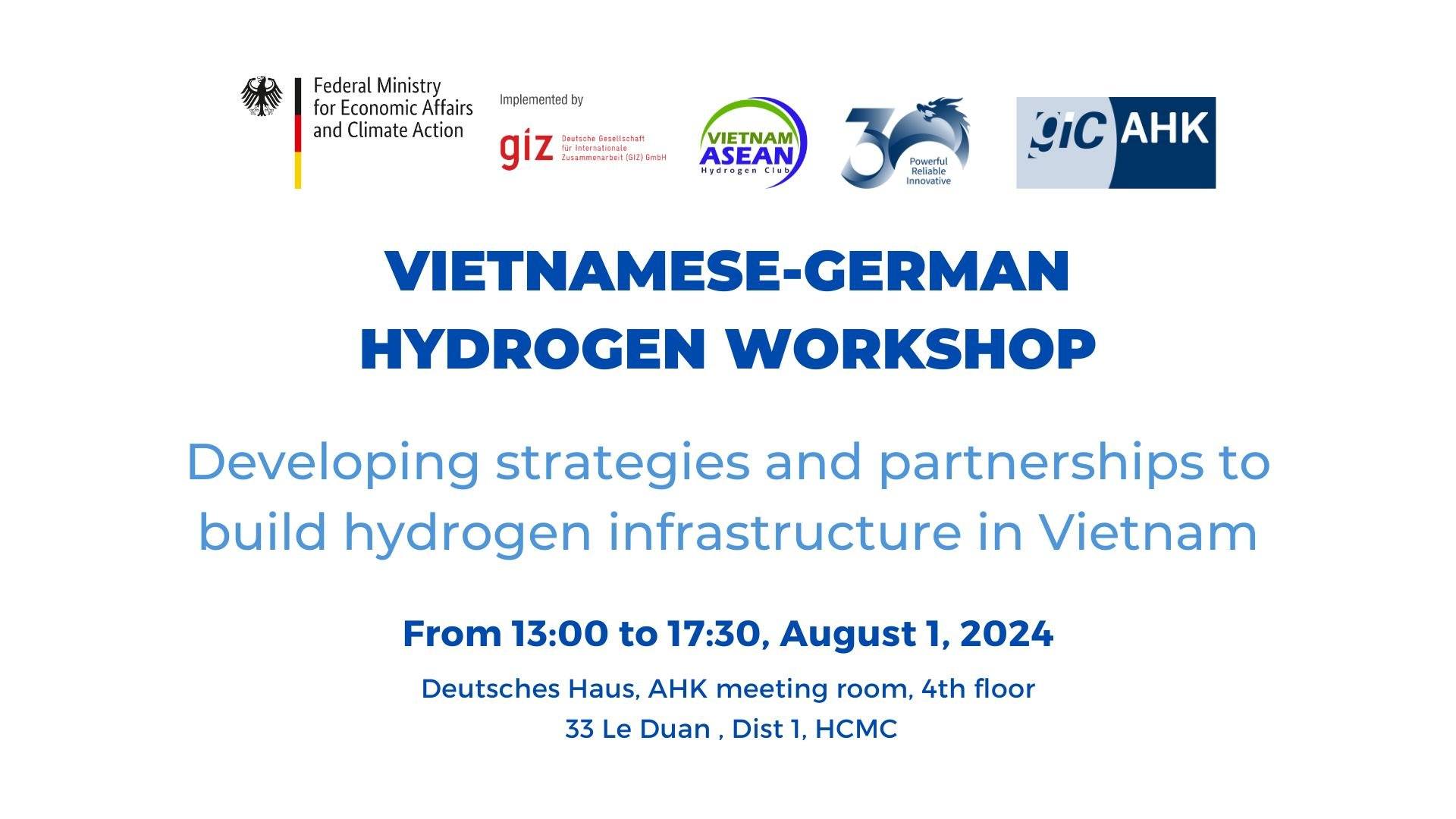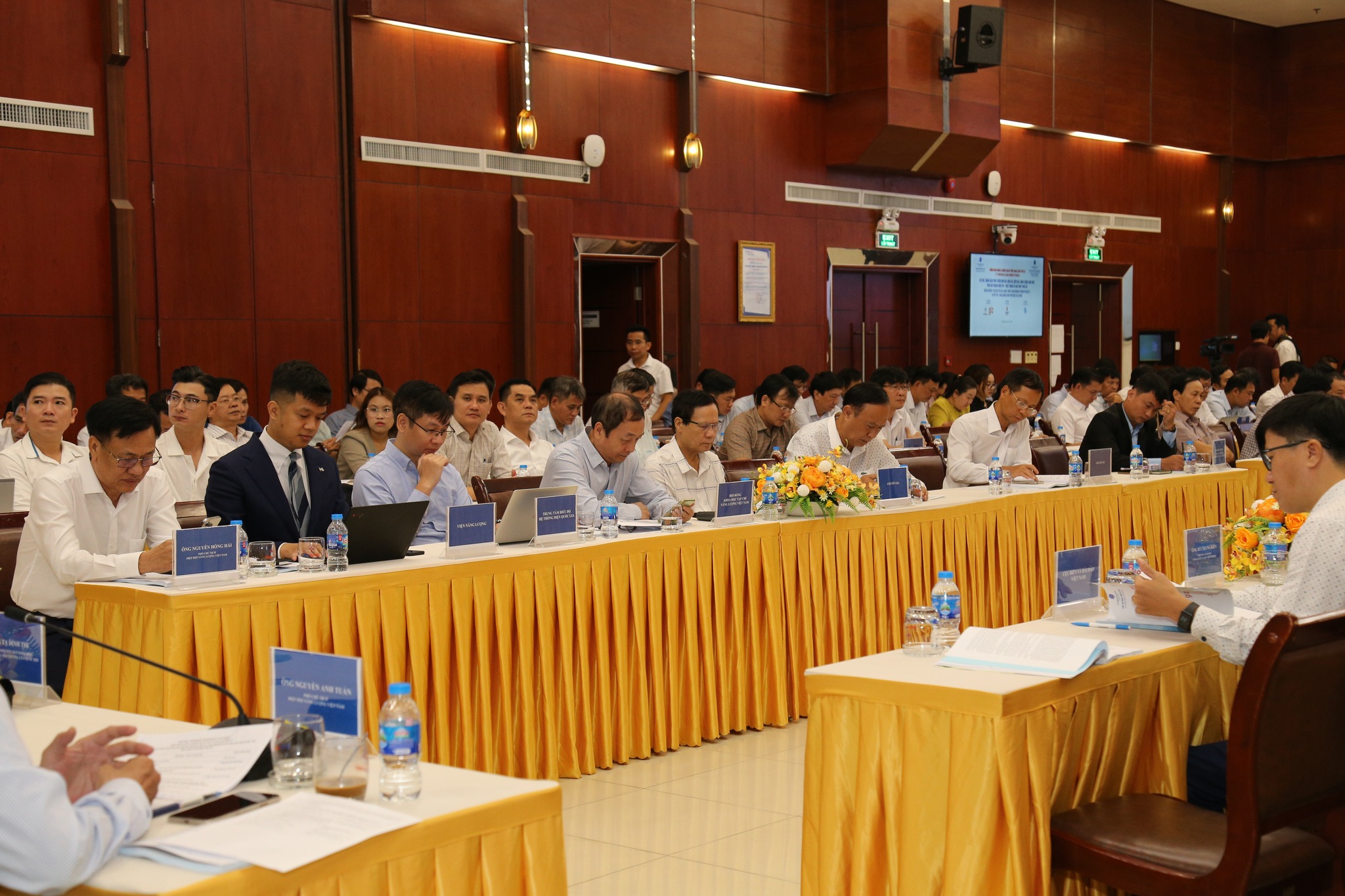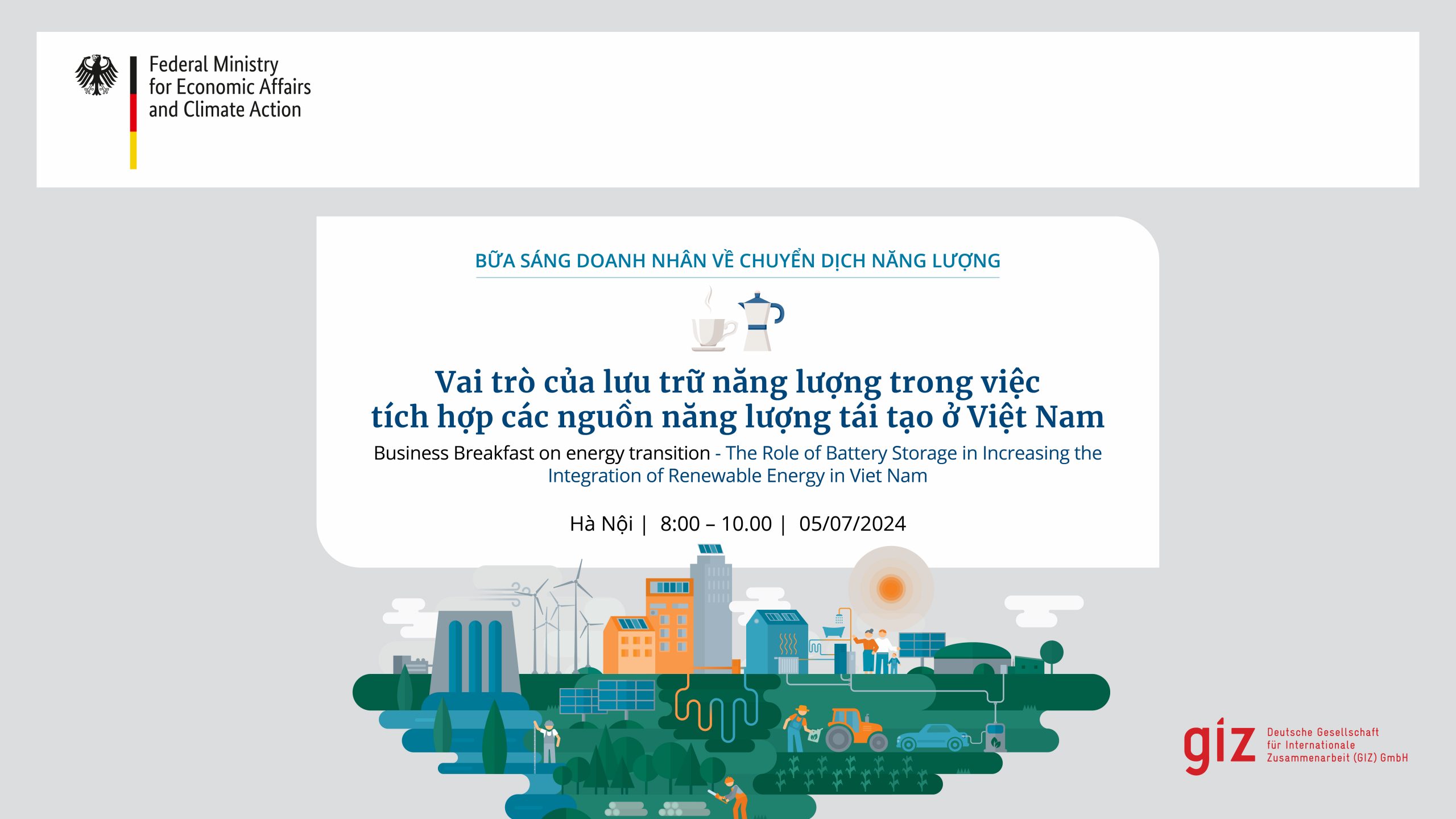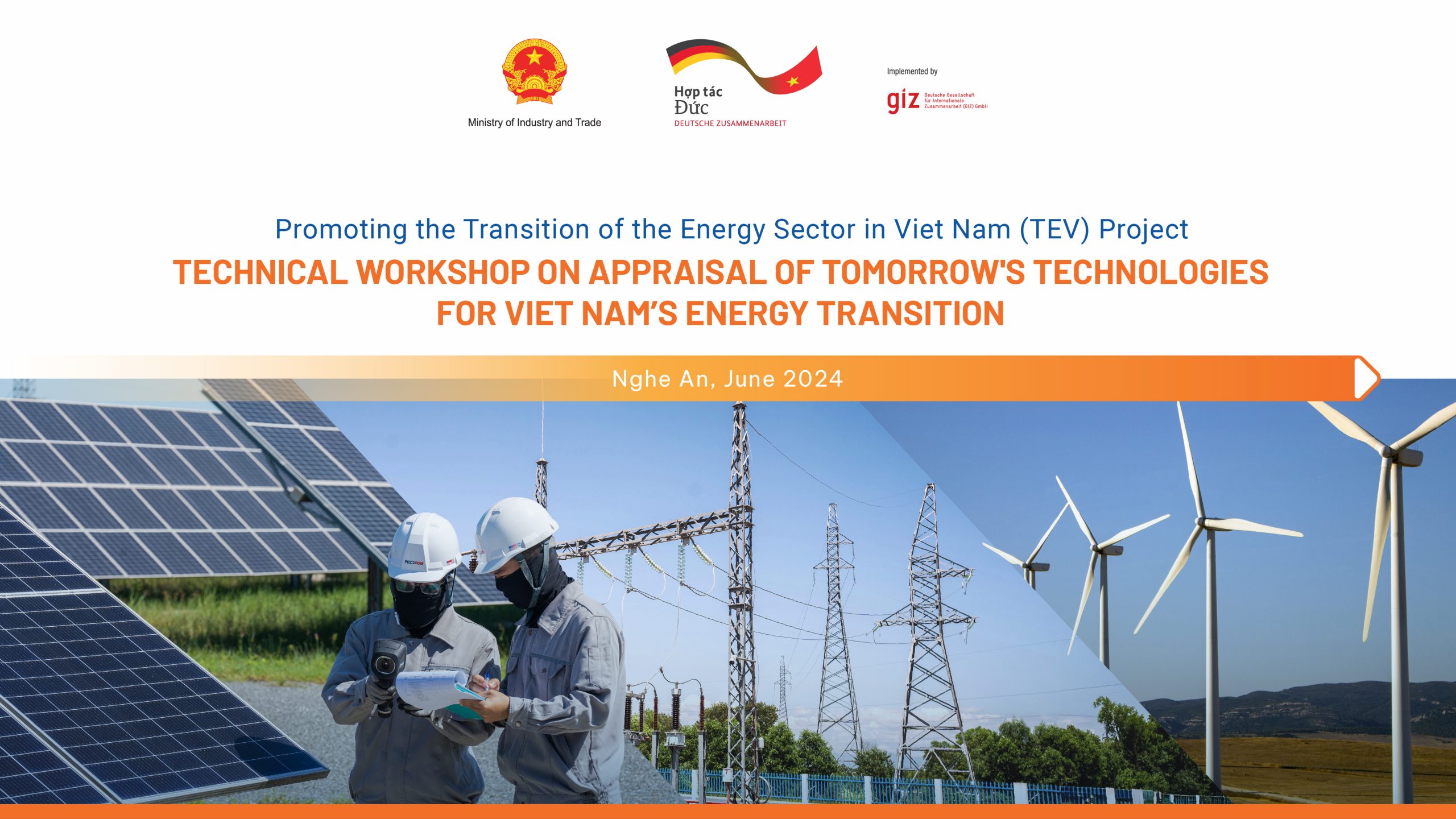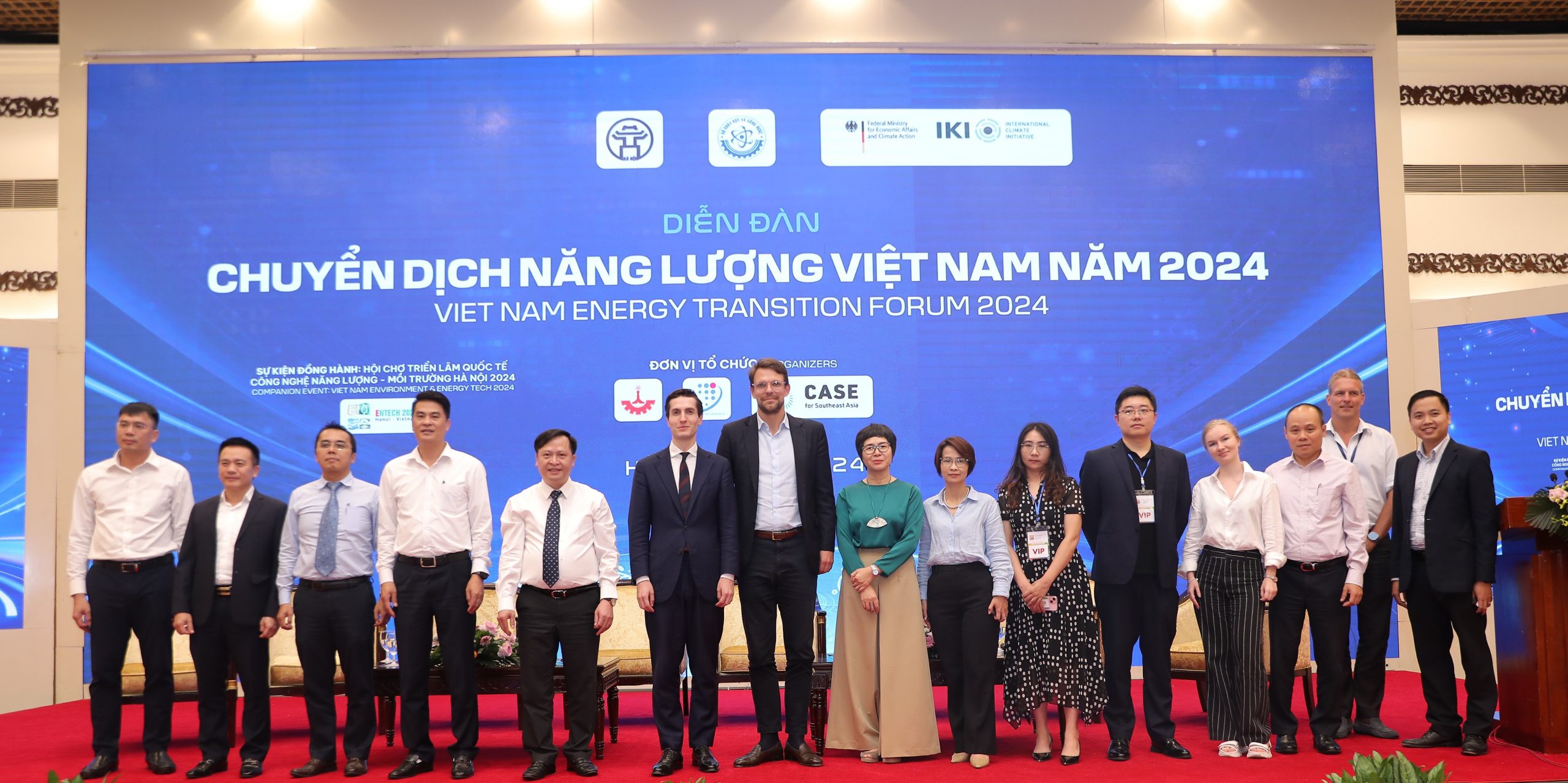Green employment trends, fostered by the energy transition, offer decent employment opportunities for the Vietnamese youth and workforce
In 2022, there were 12.7 million jobs in the renewable energy sector, and this number is projected to continue growing, as indicated in the latest 2023 report by the International Renewable Energy Agency (IRENA). Meanwhile, the International Energy Agency (IEA) estimates that the world will see 25 million additional jobs in clean energy and related industries by 2030.
In Vietnam, as stated in the book “Overview of the Socio-economic Impacts of the Energy Transition” (published by GIZ in March 2022, funded by the German Federal Ministry for Economic Affairs and Climate Action), the trending jobs in the future include those directly and indirectly related to renewable energies and energy efficiency, such as plant design, project management, construction, installation, operation and maintenance of power plants, turbine production, generators, boilers, photovoltaic panels, and wind systems for power plants. There are also derivative jobs created, for example in the logistics sector or from the livelihood needs of workers in the above groups, such as grocery stores, restaurants, essential services, etc.
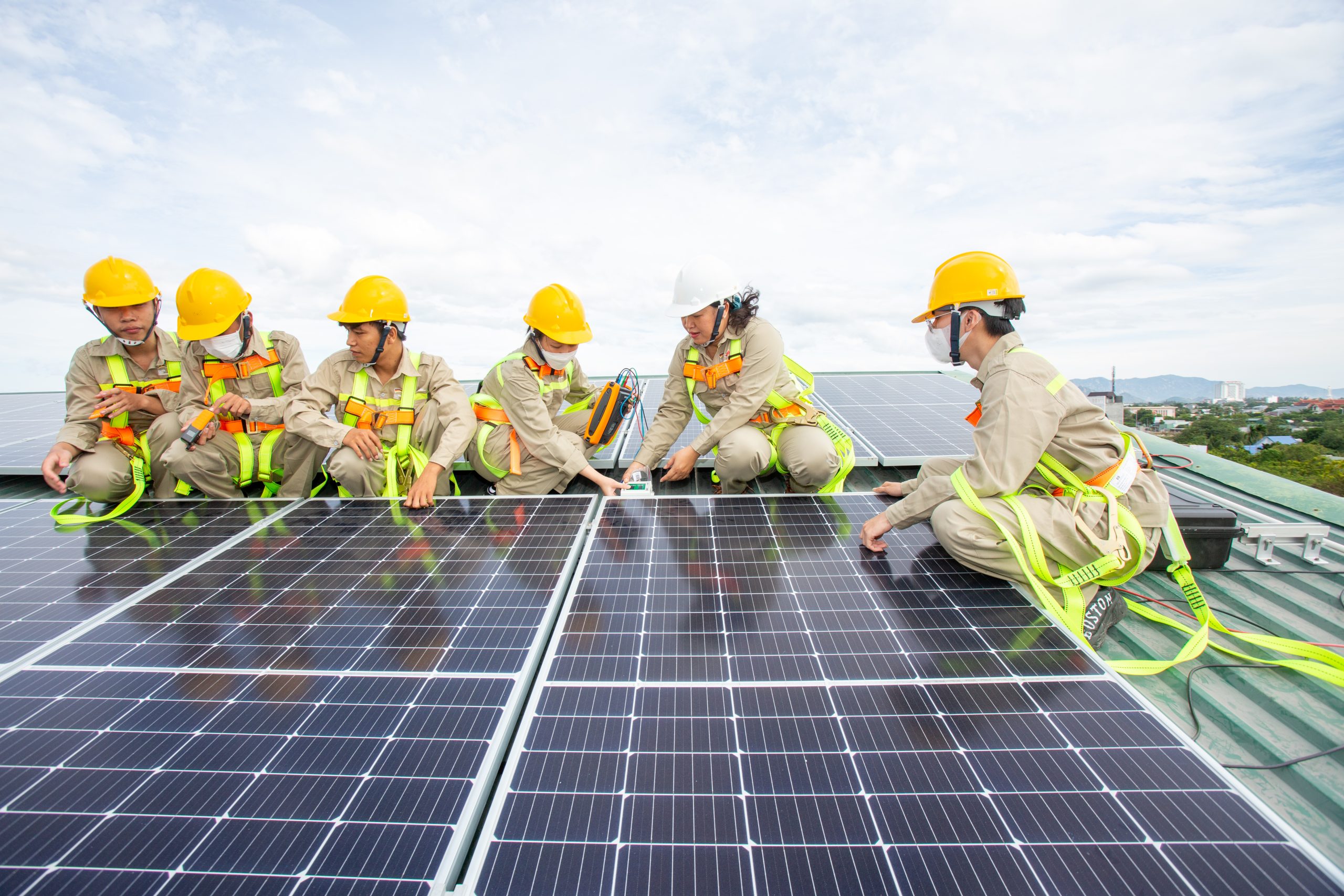
Vu Chi Mai, Director of the project Clean, Affordable and Secure Energy (CASE) for Southeast Asia said: “In the global context, Viet Nam is gradually shifting towards “greening” energy and occupations. The young workforce in Viet Nam is, therefore, also presented with significant career opportunities. Young people should have access to the most up-to-date knowledge and skills in the field of renewable energy, as well as job positions related to green industries, to progress alongside future trends.”
Green jobs – and the development of Viet Nam’s education system
In the face of labour market challenges posed by the increasing demand for green jobs, Viet Nam’s education system, despite its efforts to train workers for new sectors like renewable energies, energy technology, and energy efficiency, does not yet fully meet all market demands.
At present, within the Programme “Reform of Technical and Vocational Education and Training in Viet Nam”, Germany supports eleven Vietnamese vocational colleges in implementing German-standard oriented training programmes for technical and green occupations. ,Developing the workforce for green jobs and the energy transition is requires multiple preparatory efforts and close cooperation with the business sector. Dr. Nguyen Van Chuong, Rector of the College of Machinery and Irrigation in Dong Nai province, stated: “With the goal of building and developing the College into a hub of green job training in lines with German standards, our college is focusing on developing two new technical occupations for Viet Nam: Electronics for energy and building technology and Mechanics for sanitary, heating and climate technology. These two occupations have the task of training engineers and high-quality workers with advanced knowledge and skills in new technology application, energy efficiency and resource use, especially new energy sources.”
According to Dr. Chuong, these professions play a pioneering role as a leverage and a driving force in employment and energy transition in Viet Nam.

Viet Nam-Germany cooperation in international standard oriented “green vocational” training
With 1.5 million jobs and 15% of economic output generated from green technology, Germany is a pioneer and has extensive experience and solutions for the job transition. Germany is therefore at the forefront of developing skills for green job. As a long-term and reliable partner of Viet Nam, Germany is committed to support the green job transition in Vietnam. The German government has been collaborating with Viet Nam to promote greening of vocational training and employment according to international standards, thus creating opportunities for young people to be prepared for the global energy transition, Dr. Guido Hildner, Ambassador of the Federal Republic of Germany to Viet Nam shared.
One of the activities of the German Government to support the energy and job transition in Viet Nam is the above mentioned Programme “Reform of Technical and Vocational Education and Training” – on behalf of the German Federal Ministry for Economic Cooperation and Development (BMZ) implemented by the Deutsche Gesellschaft für Internationale Zusammenarbeit (GIZ) GmbH in cooperation with the Vietnamese Directorate of Vocational Education and Training (DVET), under the Ministry of Labour, Invalids & Social Affairs (MOLISA).
Dr. Juergen Hartwig, Director of the Programme, stated: “The green transition of the economy, especially the transition to green and renewable energies, requires new skills and qualifications. Most green qualifications leverage knowledge from existing training programs but require additional training modules. For example, technicians maintaining wind power plants need a solid foundation in mechatronics, and photovoltaic technicians need electrical/electronic training. With vocational training, we not only support the development of these basic training programs according to international standards, but together with businesses, we also support the development of additional training modules and combined courses to train green skills, such as installing and maintaining solar panels on rooftops or wind power plants.”
With the support from international partners such as the Federal Republic of Germany, it is believed that green jobs will be the starting point for Vietnamese young people and workers to confidently join the journey of energy transition and job transition with the world.



